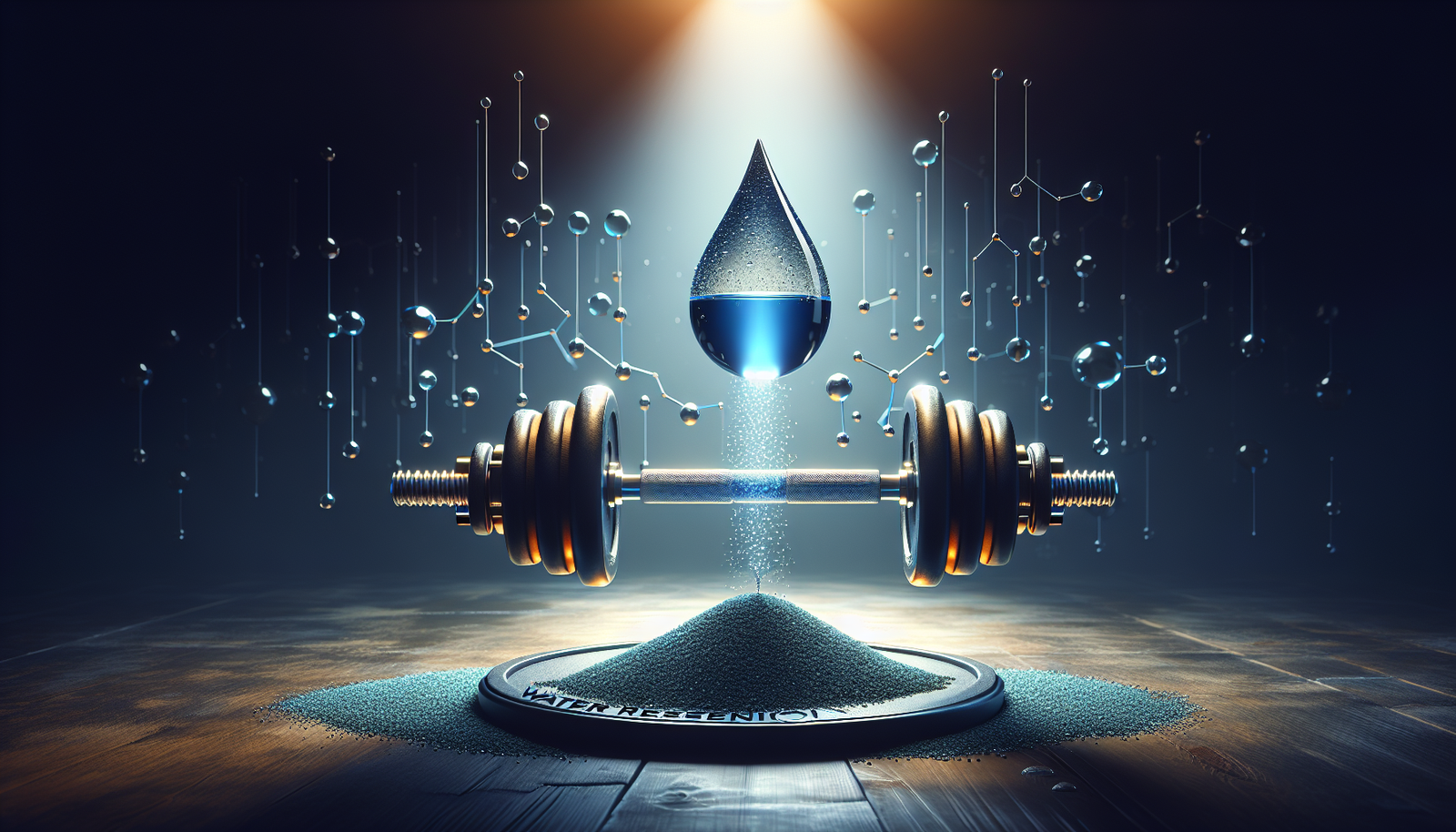Have you ever wondered about the connection between creatine and water retention? Well, in this article, we’ll explore the relationship between these two and uncover the truth behind whether or not creatine causes water retention. So, if you’ve been contemplating incorporating creatine into your fitness routine but have concerns about bloating and water weight, keep reading to find out what science has to say about it. Get ready to have all your questions answered!
Creative and Water Retention
Definition of Creatine
Creatine is a naturally occurring compound that is found in small amounts in various foods, such as meat and fish, and is also produced by the body. It plays a crucial role in providing energy to muscles during high-intensity exercises, making it a popular supplement among athletes and fitness enthusiasts.
Definition of Water Retention
Water retention, also known as fluid retention or edema, refers to the abnormal accumulation of fluid in the body tissues. This can occur in various parts of the body, such as the hands, feet, ankles, and legs. Water retention can be caused by several factors, including hormonal changes, certain medications, and underlying health conditions.
The Role of Creatine in Water Retention
Creatine and Muscle Cells
One of the primary effects of creatine is its ability to enhance the water content within muscle cells. When you consume creatine, it gets absorbed into your bloodstream and then taken up by the muscles. Once inside the muscle cells, creatine attracts water molecules, causing an increase in their overall water content. This is known as intracellular water retention.
Creatine and Fluid Balance
Creatine exerts its influence on fluid balance by affecting the movement of water between various compartments in the body. It has been suggested that creatine supplementation may increase total body water, resulting in an expansion of the extracellular fluid compartment. This can lead to an increase in overall body weight and temporary water retention.
Effects of Creatine on Water Retention
Increased Water Content in Muscle Cells
When you consume creatine, it enters your muscle cells and pulls water along with it. This increase in water content within the muscle cells can contribute to a fuller and more volumized appearance, giving your muscles a pumped-up look. However, it’s important to note that this effect is transient and will diminish once creatine supplementation is discontinued.
Subcutaneous Water Retention
In addition to increasing water content within muscle cells, creatine supplementation has also been associated with subcutaneous water retention. Subcutaneous refers to the layer of fat located just below the skin. Some individuals may experience a bloated or puffy appearance due to this subcutaneous water retention while taking creatine. It’s essential to keep in mind that not everyone will experience this effect, as individual responses can vary.
Body Weight and Water Retention
As creatine can lead to increased water retention, it’s not uncommon for individuals to notice a temporary increase in body weight while taking creatine supplements. This weight gain is primarily due to the additional water being held within the muscles and extracellular fluid compartments. It’s crucial to remember that this weight gain is not reflective of increased muscle mass but rather a result of water retention.
Factors Affecting Water Retention
Dosage and Timing of Creatine Intake
The dosage and timing of creatine intake can affect water retention. Higher doses of creatine supplementation may lead to a more pronounced increase in water content within muscle cells and extracellular fluid compartments. Similarly, the timing of when you take creatine can also influence water retention, with some individuals reporting more significant effects when consumed pre or post-workout.
Individual Differences
It’s essential to recognize that individual responses to creatine supplementation can vary. While some individuals may experience noticeable water retention effects, others may not experience any changes at all. Factors such as genetics, body composition, and hydration status can play a role in determining an individual’s susceptibility to water retention while taking creatine.
Hydration Status
Your hydration status can also impact the degree of water retention associated with creatine supplementation. Staying adequately hydrated is crucial to ensure optimal fluid balance within the body. If you fail to maintain proper hydration levels while using creatine, it could potentially exacerbate water retention effects. Therefore, it is vital to drink enough water throughout the day to support overall hydration.
Managing Water Retention with Creatine
Proper Hydration
One effective way to manage water retention while using creatine is to prioritize proper hydration. Aim to drink an adequate amount of water throughout the day, especially when engaging in intense workouts. By keeping your body hydrated, you can help maintain fluid balance and mitigate any potential bloating or puffiness associated with water retention.
Adjusting Creatine Dosage
If you find that you are experiencing significant water retention effects while taking creatine, you may consider adjusting your dosage. Lowering the dosage can potentially minimize the extent of water retention while still reaping the benefits of creatine supplementation. It is advisable to consult with a healthcare professional or a qualified trainer before making any changes to your creatine regimen.
Monitoring Weight and Body Composition
As water retention can temporarily impact body weight, it’s important not to solely rely on the scale when assessing your progress. Instead, consider tracking other indicators of body composition, such as body measurements, photos, and performance improvements in the gym. This comprehensive approach will provide a more accurate representation of your progress and help you differentiate between water weight and actual muscle gain.
In conclusion, creatine supplementation can indeed result in water retention effects, primarily through increased water content within muscle cells and extracellular fluid compartments. While this may lead to weight gain and a temporary bloated appearance, it’s important to remember that these effects are transient and not reflective of actual muscle growth. By staying properly hydrated, adjusting creatine dosage if needed, and monitoring various aspects of body composition, you can manage and minimize any potential water retention while maximizing the benefits of creatine supplementation.
